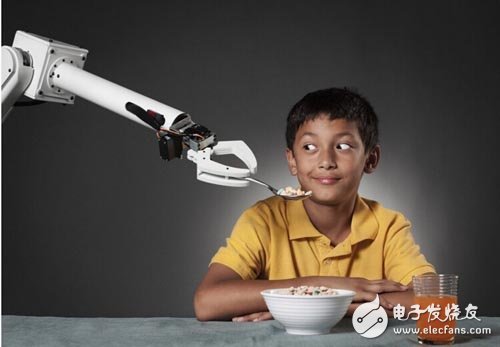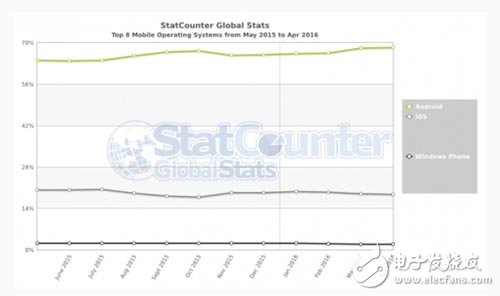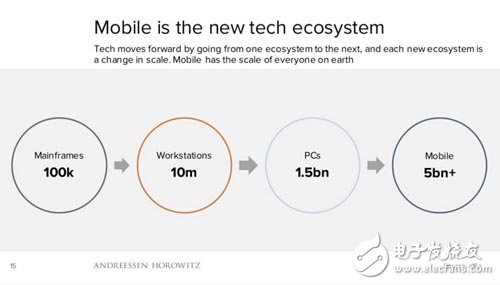In the field of technology and the Internet, Apple and Google are two companies that are absolutely inseparable. I have said more than once that Chinese technology (self) media constantly sings Apple and obsessed Google (Google returns to China). The former has long been steered by the godly Steve Jobs, using the “One more thing†to scream the whole world. The latter, in the first 15 years of this century, not only rewrote the development track of the Internet and the mobile Internet. It is also drawing a vision of a "beautiful new world" for the near future. Today, the two companies are entering a new battlefield: artificial intelligence. This article will look at the current business model and product line from the perspective of the two companies to explore the concept, layout and expectations behind artificial intelligence, the hot word, at this stage and in the foreseeable future. The era of smartphones: the battle between Apple and Google If there was no stunning appearance when Jobs took out the iPhone in January 2007, what would the mobile Internet led by smartphones look like? There may be a lot of answers, but there is a protagonist who may not be absent. This is Google. When Steve Jobs stood at the Mac World conference to showcase the redefinition of mobile phones, music players and Internet devices, Andy Rubin, then head of Google Android, was on his way to Las Vegas. After watching Steve Jobs's press conference, he even said to a colleague in the car: "We don't have to release our own mobile phone." Apple's genius design and strong manufacturing capabilities make the first iPhone more like a craft, rather than a "trans-age computing device" like their early announcement. The first generation iPhone does not support 3G networks, there is no multitasking mechanism, and it is not even possible to copy and paste text. For many people, this is just a cool device, not a good device. In the eyes of Android's father Rubin, the iPhone is not cool enough. His dream is to run his own system on different operators and different brands of mobile phones around the world. Based on this concept, Google established the "Android Mobile Phone Alliance" in 2007, bringing together multiple operators and mobile phone manufacturers. Their division of labor is very clear. Google is responsible for the operating system, mobile phone manufacturers make mobile phones, and operators are responsible for sales. In the past seven or eight years, Apple and Google have embarked on two different development paths, one to conquer the world with one iPhone, and the other to seize intelligence through the Android system, Google Mobile Service and growing mobile phone manufacturers. The share of mobile phones. Below is the statistics for May and June 2016. Gartner's data shows that Android and iOS share the current mobile Internet operating system market share, which is about 7:3. Another data from research firm Kantar Worldpanel ComTech, in the first three months of the end of April this year, Android's smartphone market share in the five largest markets in Europe (UK, Germany, France, Italy and Spain) is 76%. Compared with 70.2% in the same period last year, it increased by 5.8 percentage points. The operating system market share certainly cannot fully explain the problem. With the sales of the iPhone, Apple has become one of the most profitable companies in the world. Some media have compared Apple to the "digital oil company", and its market value was once close to one trillion US dollars. In the latest quarter of Apple's worst earnings report in 13 years, revenue from the iPhone supported half of Apple's total revenue this quarter (quarterly total revenue of $42.4 billion and iPhone revenue of more than $21 billion). Apple's official figures also show that Apple has sold a total of 1 billion iPhones in its nine years from 2007 to the present. Google has never revealed how much it has earned on Android, but according to estimates by Oracle lawyers in Java infringement lawsuits, Android has generated $31 billion in revenue for Google, with a profit of $22 billion. Regardless of technology or industry trends, smartphones are evolution of "computing", from a PC to a mobile phone for everyone, and even a number of mobile phones. Silicon Valley venture capital a16z partner Benedict Evans used 76 PPTs. Demonstrating the subversion of smartphones to the world, the following two figures show the huge impact of smartphones in the entire smart device space: Zgar International (M) SDN BHD , https://www.oemvape-pen.com


